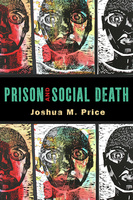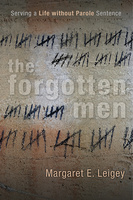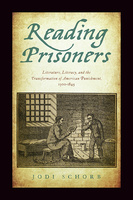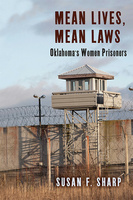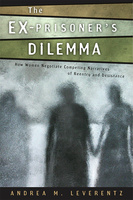Showing 21-30 of 62 items.
When Riot Cops Are Not Enough
The Policing and Repression of Occupy Oakland
By Mike King
Rutgers University Press
In When Riot Cops Are Not Enough, sociologist Mike King examines the policing, and broader political repression, of the Occupy Oakland movement. King’s active and daily participation in that movement provides a unique insider perspective to illustrate how the Oakland police and city administrators lost the ability to effectively control the movement.
Sex Offenders, Stigma, and Social Control
Rutgers University Press
Rickard provides the reader with an in-depth view of six sex offenders, exploring how they manage to cope with their highly stigmatized role as social outcasts. Placing their stories within the context of the current culture of mass incarceration and zero-tolerance, Rickard provides a deeper understanding of the complex relationship between public policy and lived experience.
The Methamphetamine Industry in America
Transnational Cartels and Local Entrepreneurs
Rutgers University Press
The result of a study stretching from small-town America to Mexican cartels, and from law enforcement officers and drug treatment workers to local dealers and users, this book tells the story of how methamphetamine markets evolved in the United States—and thrived, despite vigorous legal and law enforcement challenges. Through the eyes and words of dealers, users, police officers, and treatment workers, the authors produce a complex picture of the social operation, organization, and meaning of the meth industry in America.
Police, Power, and the Production of Racial Boundaries
By Ana Muñiz
Rutgers University Press
Based on five years of ethnography, archival research, census data analysis, and interviews, Police, Power, and the Production of Racial Boundaries reveals how the LAPD, city prosecutors, and business owners struggled to control who should be considered “dangerous” and how they should be policed in Los Angeles. Ana Muñiz shows how this influential group used policies and everyday procedures to criminalize behaviors commonly associated with blacks and Latinos and to promote an exceedingly aggressive form of policing.
Prison and Social Death
Rutgers University Press
A compelling blend of solidarity, civil rights activism, and social research, Prison and Social Death offers a unique look at the American prison and the excessive and unnecessary damage it inflicts on convicts and parolees. Joshua M. Price documents the “social death” that convicts suffer while incarcerated and afterward, drawing upon hundreds of often harrowing interviews conducted with prisoners, parolees, and their families.
The Forgotten Men
Serving a Life without Parole Sentence
Rutgers University Press
In The Forgotten Men, criminologist Margaret E. Leigey provides an insightful account of a group of inmates sentenced to life without parole. Imprisoned for at least twenty years, with virtually no chance of release, these men make up one of the most marginalized segments of the U.S. prison population. Drawing on in-depth interviews with twenty-five such prisoners, Leigey describes how they struggle to construct meaningful lives and provides a much-needed analysis of the policies behind life-without-parole sentencing.
Reading Prisoners
Literature, Literacy, and the Transformation of American Punishment, 1700–1845
By Jodi Schorb
Rutgers University Press
Shining new light on early American prison literature, Reading Prisoners weaves together insights about the rise of the early American penitentiary, the history of early American literacy instruction, and the transformation of crime writing in the “long” eighteenth century. Jodi Schorb overturns much conventional wisdom as she illuminates how prisoners first entered print as readers and writers, from the colonial American jail to the early national penitentiary.
Mean Lives, Mean Laws
Oklahoma's Women Prisoners
Rutgers University Press
Oklahoma has long held the dubious honor of having the highest female incarceration rate in the country, nearly twice the national average. Mean Lives, Mean Laws puts a human face on this alarming statistic, revealing the troubled backgrounds and harsh laws that lead so many Oklahoman women to commit crimes. Drawn from over a decade of first-hand research, the book provides a rigorous analysis of the criminal justice system, yet also gives voice to the women locked within it.
The Methamphetamine Industry in America
Transnational Cartels and Local Entrepreneurs
Rutgers University Press
The result of a study stretching from small-town America to Mexican cartels, and from law enforcement officers and drug treatment workers to local dealers and users, this book tells the story of how methamphetamine markets evolved in the United States—and thrived, despite vigorous legal and law enforcement challenges. Through the eyes and words of dealers, users, police officers, and treatment workers, the authors produce a complex picture of the social operation, organization, and meaning of the meth industry in America.
The Ex-Prisoner's Dilemma
How Women Negotiate Competing Narratives of Reentry and Desistance
Rutgers University Press
Drawing on repeated interviews with forty-nine women newly released from prison, Leverentz explores the conflicting messages these women receive about who they are and who they should be—from prison staff, workers at halfway houses and drug treatment programs, family members, and friends. These messages, she shows, shape the narratives the women create to explain their past records and guide their future behavior.
Stay Informed
Subscribe nowRecent News





